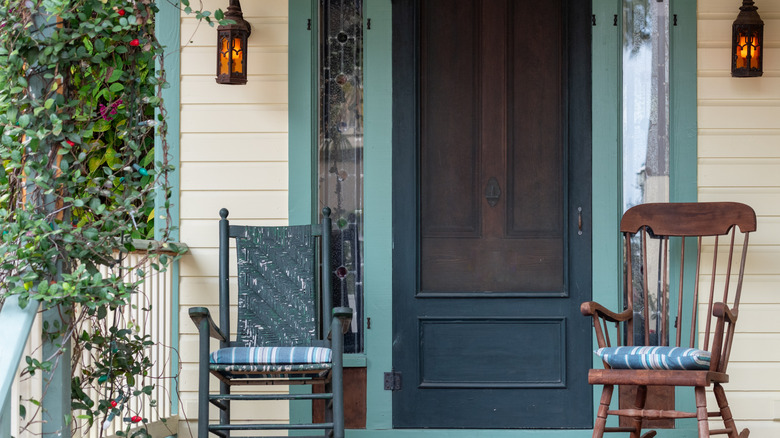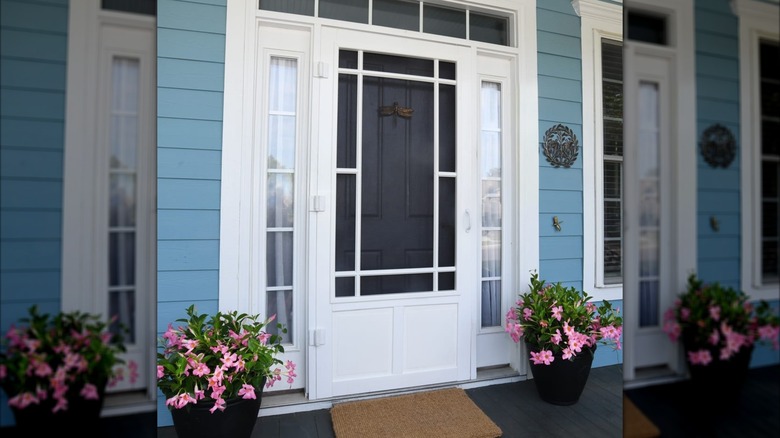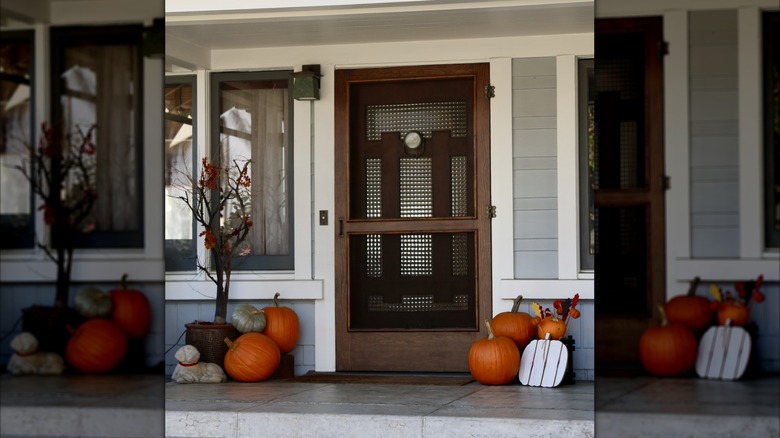Vinyl Vs Wood Screen Doors: Which Is The Best Option For Your Home?
Screen doors might seem like a small detail, but they play an important role in your home's design and functionality. They let in the cool breeze while keeping those pesky bugs at bay, and can also help to boost the curb appeal of your home. There are several types of screen doors for your home, and two of the most common are vinyl and wood.
Picking what is best between a vinyl or wood screen door boils down to your personal preferences and the specific needs of your home. A vinyl screen door, for example, is the best choice if you're on a budget but want an option that can withstand the elements and doesn't require much maintenance. It's also perfect for modern homes or homeowners who want something simple and durable. A wooden screen door, on the other hand, is good for those who don't mind investing a bit more time and money into upkeep. It also brings a dose of character to your exterior and complements older or rustic-style homes.
Each material comes with its own unique set of benefits and drawbacks. But whichever option you choose, you will need to consider your climate, lifestyle, and budget so you won't fall victim to the common mistakes people make choosing a front door. The decision you make will ultimately impact how well the door holds up as years go by, so a bit of research can help you save yourself trouble down the line.
Advantages and disadvantages of using vinyl screen doors
You might want to consider vinyl screen doors if you're looking for something practical and low maintenance. This material, after all, doesn't require painting or staining anymore. There are also weather-resistant options too! Their durability helps them withstand daily wear and tear which can help it last long. Choosing vinyl screen doors can also mean going through the budget route since they are more affordable than wood and can easily be installed. No need for professionals or complicated tools.
The downside here though is that vinyl doesn't have the same classic appeal as wood. It is available in various colors, yes, but it cannot be easily customized. This may be a drawback for homeowners who want a more unique look for their equally unique house. Vinyl screen doors usually have a more modern or industrial appearance which may not complement traditional home design.
Vinyl can also become brittle or crack over time particularly in areas with extreme temperatures. This means you will need to consider the climate conditions of your area when choosing between the two options. Also, while they are relatively sturdy, vinyl screen doors can still be easily be dented and scratched with use.
Pros and cons of wood screen doors
If charm is what you are looking for, then consider wood screen doors. They can help give your house a more traditional look that is welcoming and rustic. It's also perfect for homeowners who want a more personalized touch. Wood, after all, can be painted or stained to match your home's color scheme and design. Wood screen doors can also last for many years.
Choosing wood screen doors, however, comes with its own set of challenges. They require frequent upkeep to protect them from moisture, rot, and weathering. This upkeep can be time-consuming and costly. This is on top of wood doors being also generally more expensive than vinyl, especially if you're looking for a higher-quality finish or a custom design.
This means that you will need to do your best to keep wood screen doors in top shape. These steps include monitoring for any signs of rot, repainting or resealing, and protecting the wood from the elements. But if you love the classic look of wood and don't mind the upkeep, this option could be perfect for your home. You just need to know how to easily clean your screen doors with a household staple to help maintain their classic appearance.


